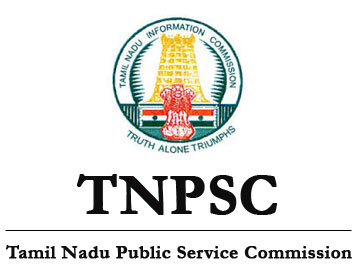
(Syllabus) TNPSC: Combined Civil Services - I Exam (Except
Gr. I-B Service)
Group I Services (Preliminary Examination)
General Studies - Degree standard
TOPICS FOR OBJECTIVE TYPE
UNIT – I - General science :
Physics - Universe - General Scientific laws -
Scientific instruments - Inventions and discoveries-National scientific
laboratories-Science glossary-Mechanics and properties of matter-Physical
quantities, standards and units-Force, motion and energy- electricity and
Magnetism - electronics & communications - Heat, light and sound-Atomic and
nuclear physics-Solid State Physics-Spectroscopy – Geophysics - Astronomy and
space science.
Chemistry - Elements and Compounds-Acids, bases and
salts - Oxidation and reduction – Chemistry of ores and metals -Carbon, nitrogen
and their compounds- Fertilizers, pesticides, insecticides-Biochemistry and
biotechnology-Electrochemistry- Polymers and plastics
Botany - Main Concepts of life science-The cell-basic
unit of life-Classification of living organism-Nutrition and
dietetics-Respiration-Excretion of metabolic waste-Bio- communication
Zoology - Blood and blood circulation-Endocrine
system-Reproductive system- Genetics the science of heredity-Environment,
ecology, health and hygiene, Bio- diversity and its conservation-Human diseases,
prevention and remedies- Communicable diseases and non- communicable
diseases-Alcoholism and drug abuse-Animals, plants and human life-
UNIT - II. Current Events
History - Latest diary of events – National - National
symbols -Profile of States- Defence, national security and terrorism-World
organizations-pacts and summits- Eminent persons & places in news-Sports &
games-Books & authors -Awards & Honours-Cultural panorama-Latest historical
events- India and its neighbours- Latest terminology- Appointments-who is who?
Political Science - India’s foreign policy - Latest
court verdicts – public opinion - Problems in conduct of public elections-
Political parties and political system in India- Public awareness & General
administration- Role of Voluntary organizations & Govt.,- Welfare oriented govt.
schemes, their utility
Geography - Geographical landmarks-Policy on environment and ecology
Economics- Current socio-economic problems-New economic policy & govt.
sector